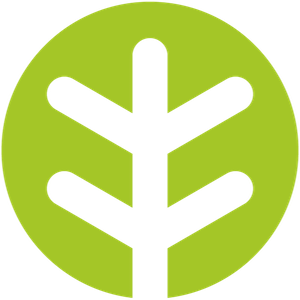
Hey there, I'm Logan.
I’m queer, neurodivergent, and a trauma survivor. I’m also an occupational therapist and a yoga teacher. I don’t show up as an “expert” who has it all figured out. I show up as someone who has been through it, is still going through it, and wants to make it easier for others to do the same.
I know what it’s like to be burned out—waking up with dread, running on empty, dealing with pain, or feeling like you can’t give your best because of constraints outside your control. I know the overstimulation that feels like static in your brain, the spiral into numbing or disconnecting, and the anxiety of never feeling like enough.
I don’t have a magic fix. But I do have practices and tools that have helped me: tools that make life a little lighter, a little more manageable, and a lot more regulated. That’s what I want to share with you.
I don’t promise overnight healing. What I do offer is compassion, tools, and space to practice using them without fear of judgement.
My Story
I first came to yoga looking for strength, flexibility, and balance. But when the pandemic hit, yoga became something much more: a way to move through grief, stress, and isolation.
Every time I stepped on my mat, it felt like looking into a mirror. I could meet myself exactly as I was with honesty, breath, and presence.
At the same time, I was navigating graduate school, ADHD, and (eventually) a diagnosis of complex PTSD. Yoga gave me space to face myself, and my trauma-informed teacher training helped me put words, validation, and practices to what I had already been experiencing.
I realized that stress, trauma, neurodivergence, queerness, and the demands of being a helper. They don’t just live in our minds. They live in our bodies, our habits, our environments, and in the way we move through daily life. And yoga, when paired with occupational therapy, helps us connect those dots.
"Every time I stepped on my mat, it felt like looking into a mirror."
What Got Me Here
I bring together both lived experience and formal training:
Master of Science in Occupational Therapy | East Carolina University
National Board Certified Occupational Therapist licensed in North Carolina
Bachelor of Science in Health Promotion & Behavior + Certificate in Health Disparities & Equity | University of Georgia
200-Hour Registered Yoga Teacher | Yoga Alliance
Certification in Trauma-Informed, Accessible, Adaptive, & Inclusive Yoga Teaching
I deeply resonate with the work of Stephen Porges (polyvagal theory), Arielle Schwartz (therapeutic yoga for trauma recovery), and Kristin Neff (self-compassion) and integrate their principles and frameworks throughout my personal life, teachings, and practice.
"My work lives at the intersection of science and practice—where OT meets yoga."
My Philosophy
For me, the yoga mat is a training ground for real life. It’s where we practice nervous system regulation, self-compassion, and feel good movement so that, when we need them in daily life, they’re already familiar and available.
That means yoga isn’t just what happens on the mat. It’s also:
Smartly selecting movements during those slivers of time between tasks at work that reduce the stiffness in your back
Noticing when your tank is running empty while out with friends and being able to engage in a steady and nourishing breathing pattern to get you through it
Coming home from work to an environment that's soothing to the senses an supports intentional recharge
Waking up dreading another day of work or a challenging task but choosing mindful self-compassion rather than suffer through it with grit alone
Yoga helps us respond instead of react. It gives us the capacity to show up imperfectly but more resourced, balanced, and connected.
My work draws heavily on polyvagal theory, practices centering interoceptive awareness, mindful self-compassion, acceptance and commitment therapy, and trauma-informed approaches through the lenses of occupational therapy and yoga.
"The mat is a space to practice being just as much as it is a training ground for the doing of daily life."
What It Feels Like to Work With Me
Working with me isn’t like taking a drop-in yoga class where you follow along for an hour and leave. It’s a back-and-forth. A conversation. An exploration.
My approach is:
Warm and compassionate | You’ll feel supported, not judged.
Gently structured but adaptive | There’s a framework, but we’ll stay responsive to your needs in the moment.
Observant and attuned | I notice subtleties in how you move, breathe, and respond, and I help you notice them too.
Exploratory and experiential | You don’t just hear about tools, you practice them, reflect, and try again.
This work isn’t only about regulation. It can also give you tools for:
Managing pain or fatigue so you can focus on what’s meaningful to you
Resting more deeply and intentionally
Making everyday activities feel more possible and less draining
Showing up in your relationships with more presence and less reactivity
"It’s not just yoga. It’s an interactive, experiential process designed for your real life."
Take the First Step on Your Middle Path

IN-PERSON or VIRTUAL
Explore how you can take the therapeutic benefits of yoga off the mat and into daily life through a holistic intake assessment, collaborative goal writing, 1:1 sessions, and plenty of resources as you find your middle path.

VIRTUAL
Burned out OTPs, slow down and feel seen as you connect, breathe, move, rest, and share the load with others who get it. Regulate your nervous system and restore your why in this virtual community for OTPs by OTPs.

IN-PERSON
Join me at Yoga District Durham for yoga that meets you where you are and empowers you to take the practice with you off the mat.
Get Off-the-Mat Practices + Updates in Your Inbox
Drop your name and email to get my current favorite Off-the-Mat practice and stay up to day with what's happening here.


 OfferingTree
OfferingTree